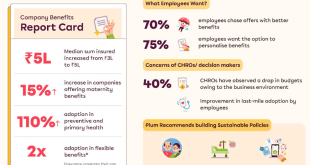Switching to Zinc ion batteries can be a significant step towards sustainability, as they are a more abundant, longer-lasting, safer, cost-effective, and environmentally friendly option as compared to other types of batteries. Zinc is a highly abundant and widely available element, making it a more sustainable choice. Zinc ion batteries have a higher energy density, longer lifespan, and lower carbon footprint, making them ideal for use in electric vehicles and promoting the use of renewable energy sources. By choosing Zinc ion batteries, one can reduce the carbon footprint and contribute to a more sustainable future. Here are few tips from by Dr Rahul Sharma Director-India, International Zinc Association:
1. A sustainable and ethical choice for batteries: Zinc is a highly abundant and widely available element, making it a more sustainable choice compared to other battery materials like cobalt and lithium, which are often associated with environmental and ethical concerns in their extraction and production.
2. Compact and Powerful Solution for Electric Vehicles: Zinc ion batteries have a higher energy density compared to other types of batteries, which means they can store more energy in a smaller space. This makes them ideal for use in electric vehicles, where space is at a premium.
3. Sustainable Choice with Long-lasting Performance: Zinc ion batteries have a longer lifespan compared to other types of batteries, which means they can be used for a longer period before needing to be replaced. This reduces the amount of battery waste generated and reduces the need for frequent battery replacements.
4. Safer and Eco-friendly choice: Zinc ion batteries are safer to use and dispose of compared to other types of batteries, as they do not contain toxic materials that can harm the environment or human health. Zinc-ion batteries are rechargeable, low-cost batteries that can be a substitute to India’s expensive and imported lithium-ion batteries.
5. Affordable solution: Zinc ion batteries have a lower cost compared to other types of batteries, making them a more cost-effective option for both consumers and businesses.
6. Enabling the Transition to Renewable Energy: The use of Zinc ion batteries can reduce the dependence on fossil fuels and promote the use of renewable energy sources, as they can be used to store energy generated by solar or wind power.
7. The Reliable Choice for Extreme Temperatures: Zinc batteries offer an advantage in temperature control as they can operate effectively in a wide range of temperatures, from as low as -30°C to as high as 75°C. This range is significantly better than that of most other battery chemistries, which are often limited to a narrower temperature range. This feature makes zinc batteries suitable for use in extreme weather conditions, where temperature fluctuations can affect battery performance. Zinc batteries can maintain their performance and efficiency even in harsh environments, making them a reliable choice for various applications.
In conclusion, switching to Zinc ion batteries can be a significant step towards sustainability, as they are a more abundant, longer-lasting, safer, cost-effective, and environmentally friendly option compared to other types of batteries. By choosing Zinc ion batteries, you can reduce your carbon footprint, promote the use of renewable energy sources, and contribute to a more sustainable future.
 Newspatrolling.com News cum Content Syndication Portal Online
Newspatrolling.com News cum Content Syndication Portal Online






